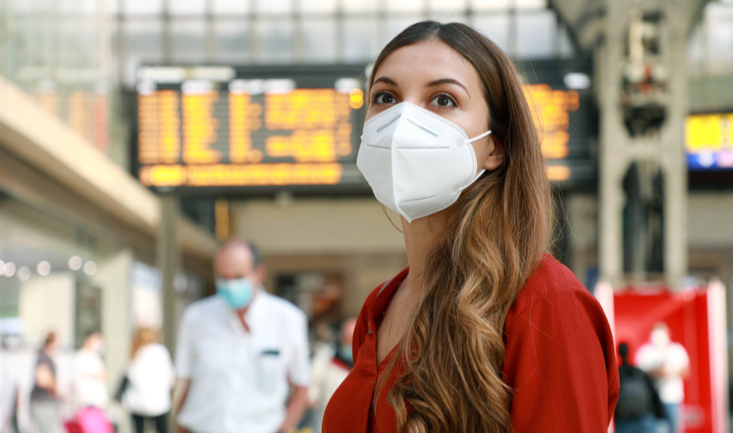As entry restrictions continue to ease in many countries, TEFL teachers are now free to plan their next overseas teaching adventure with a higher degree of certainty.
Although we’re excited to advertise more in-person job opportunities, it’s worth remembering that the pandemic is ongoing.
Delays in vaccine rollouts combined with high virus numbers in some regions mean that travel is still limited.
One of the difficulties facing teachers who want to relocate for work in 2021 is all the red tape involved.
There’s a lot to consider, with entry restrictions often differing from one country to the next.
The ambiguity surrounding vaccination requirements is a significant concern for many teachers, and it’s no surprise to see questions like, “Do I need to be vaccinated to teach abroad?” trending in many online forums.
The short answer to that question is yes, but countries continually updating their COVID-19 travel protocols complicate things.
If you’re hoping to teach abroad this year, we want to give you the information you need to make an informed decision.
With that in mind, let’s unpack how the vaccine rollout is shaping up in some of the most popular destinations for TEFL teachers and what implications that might have for your future travel plans.
Here’s what we’ll cover:
- Which countries are welcoming vaccinated teachers?
- Are schools requiring vaccination?
- Do I need to quarantine if I am vaccinated?
- Can I get vaccinated upon arrival in another country?
- How can I show my vaccine status?
Which countries are welcoming vaccinated teachers?
Where you can and can’t go is determined, in part, by the success and struggles different regions have had with their vaccine rollouts.
European nations like the UK, France, Germany and Spain have all vaccinated more than a third of their populations and are cautiously re-opening for international travel.
This is a trend we can see across the European community, with other popular TEFL destinations, including Italy, now open to overseas travellers from countries on the approved list and with strong vaccine programs, including the U.S.
It’s important to note that different countries have different rules, and it’s a good idea to check with the relevant embassy for the latest information.
As a general guideline, you will almost certainly need to be fully vaccinated before you travel if you want to avoid mandatory quarantine. More on that later!
Here’s a helpful list of countries that Americans can currently visit, including a brief description of the restrictions in place and links to government websites. (Be sure to check your country’s official sites for information on travel restrictions.)
Missing from the above list are key Asian territories for TEFL teachers, including both China and South Korea.
This is partly because the list is geared toward tourists rather than migrant workers.
Also, East Asian countries are generally enforcing much stricter border restrictions than most other regions.
But teaching English in South Korea during COVID-19 is possible, likewise in China.
It’ll take time and patience, though.
Applying for and obtaining an entry visa and a work permit will be protracted, and you’ll need to be fully vaccinated before you travel to either country.
Plus, you’ll face a minimum 14-day quarantine, regardless of your vaccine status, which in some parts of China can stretch to 21 days.
So make sure you pack plenty of essential items.
Are schools requiring vaccination?
There is no legal requirement for international schools and language centres to enforce vaccination.
Still, strict government guidelines in most countries mean that attempting to travel without being fully vaccinated is a bad idea.
Besides, would you want to risk not only your health but the health and safety of your new community?
The Council on International Exchange (CIEE), which operates both study and teach abroad programs for U.S. residents, recently resumed overseas trips to Europe and some South American and African countries.
Check out their FAQ page for a few perceptive reminders on why it’s essential to get vaccinated before you travel.
You can also learn more about some of CIEE’s life-affirming volunteer programs right here.
We’re also happy to see that many international schools and education authorities are working together to help tackle the COVID-19 pandemic.
For example, in Abu Dhabi, private school teachers and administrative staff recently received their vaccines, on campus, as part of a one-day mass-vaccination drive that was part-organized by the Abu Dhabi Department of Education and Knowledge (ADEK).
Industry-led vaccination campaigns are likely to become increasingly commonplace as countries look to kick-start international travel as soon as it’s safe to do so.
Do I need to quarantine if I am vaccinated?
Avoiding an expensive two-week quarantine might be a priority for you as you seek out your ideal role teaching English abroad.
COVID means that jobs in Europe might be your best bet if you’re feeling a little risk-averse.
It’s a good idea to keep hold of your CDC vaccine card, or at the very least a photocopy, because this is the best way to prove your vaccination status in Europe.
Evidence that you are fully vaccinated and not travelling from a high-risk zone should allow you to enter many countries across the European block without the need to quarantine.
Here’s a detailed breakdown covering several European countries and the COVID protocols they’ve put in place.
Fancy living and teaching English in beautiful Budapest? This job could be perfect for you.
Outside of Europe, quarantine-free travel gets a little trickier, but it’s still possible.
If you’re interested in teaching in the UAE, you’ll be pleased to hear that the Emirates has now waived its mandatory quarantine for visitors from countries that are on its green list, including the U.S.
You’ll still need to present a valid COVID-19 test before you board your flight, and you will also need to take a free COVID test upon arrival in either Abu Dhabi or Dubai.
You’ll then be required to self-isolate until you receive your test result, but that’s usually well within 24 hours.
If you are not fully vaccinated, you can still travel to the UAE, but you might have to quarantine for ten days.
“Might” is the operative word here because the UAE is one of several countries that looks set to embrace “vaccine-tourism.”
This brings us to…
Can I get vaccinated upon arrival in another country?
The regional government in Abu Dhabi recently announced plans to offer free vaccines to visitors traveling to the emirate.
The offer will apparently be open to travellers with visas issued by the emirate and those travelling on passports eligible for tourist visas.
There are two vaccines on offer in the UAE: Pfizer/BioNTech and the Chinese-owned Sinopharm, but whether visitors will have a choice over which one they receive is open to speculation.
At this time, it seems visitors will be able to book their vaccine via a government app, but full details about the initiative have yet to be disclosed.
If you’re planning to travel overseas this year, the simplest thing to do is get vaccinated in your home country because most governments will prioritize the health of their citizens.
In most E.U. countries, the Pfizer and AstraZeneca injections are available to both citizens and residents.
But, if you are not registered with a public healthcare provider, you’ll have to pay for your immunization.
As things stand, tourists are unable to get vaccinated in European countries.
How can I show my vaccine status?
On July 1, 2021, the E.U. unveiled its Digital COVID Certificate.
Heralded as a game-changer, the certificate can be downloaded as an app, allowing users to easily display their current vaccine status, as well as indicating whether they’ve received a negative COVID-19 test.
It also features a built-in Q.R. code that can be used at border crossings and everyday use.
Governments hope this will make it easier for citizens in the E.U. to travel between different member states during the pandemic.
But where does this leave U.S. citizens?
Talks are underway to expand the scheme to non-E.U. Citizens, enabling Americans to download the app and travel to the E.U. without relying on their CDC vaccine cards.
Remember to keep your card though because you’ll need it!
Right now, entry to most European countries for American citizens is dependent on your vaccine status.
If you’re fully vaccinated, you may not even have to take a COVID test before departure, and you won’t be subject to quarantine measures unless you’re travelling from another high-risk country.
You can use the U.S. Department of State website, or your country’s website, to get up-to-date travel advice for every country, including the exact travel requirements.
Get vaccinated and travel safely
Finding a job teaching TEFL is feasible, and right now, Europe is one of the more realistic options because entry requirements are pretty consistent across the region.
Although it is possible to travel overseas without being fully vaccinated, you’ll just be making an already complicated process even more taxing.
If you’re not vaccinated, there’s a good chance you’ll have to quarantine upon arrival, and you may well face additional COVID tests.
It’s also worth remembering that the only way to bring the pandemic to an end is for all of us to be responsible, play our part and help halt the spread of COVID-19.
Contact Teach Away today and discover how we can help you land your dream teaching job as you travel safely to your new home.



